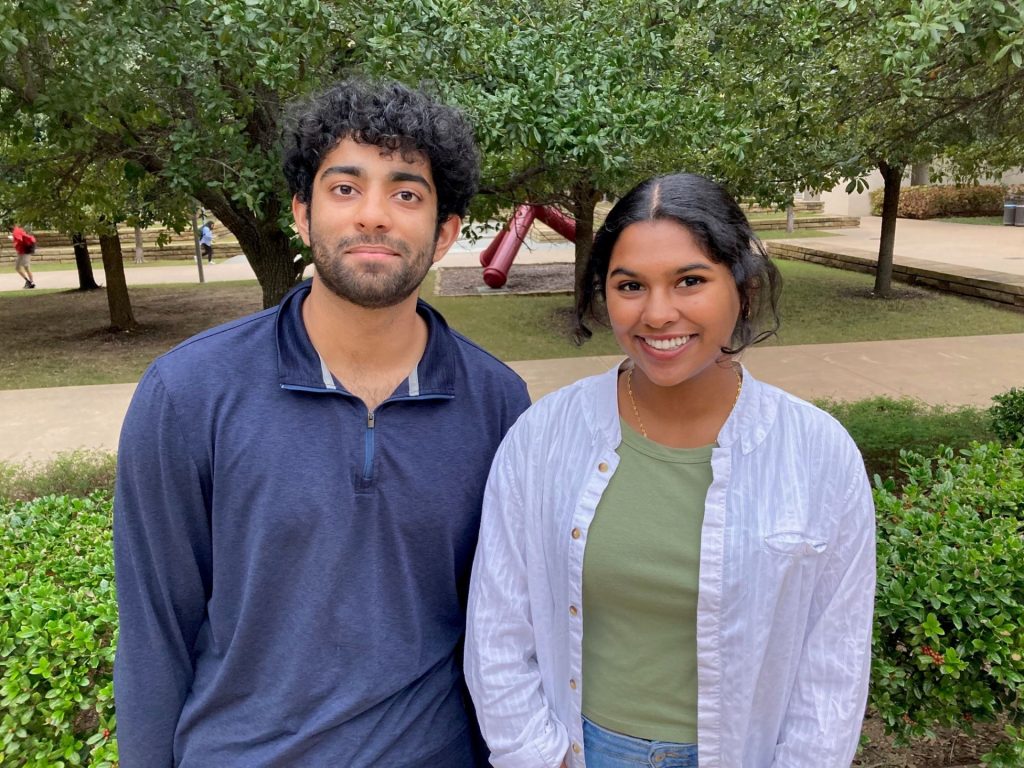
By Rick Vacek | December 8, 2023
Higher education often is about finding solutions in exams, projects, research or, in the case of Nandita Kumar and Avinash Chivakula, a highly successful student initiative.
The sophomores in the Hobson Wildenthal Honors College at The University of Texas at Dallas turned the inaugural Global Health Case Competition into much more than just another solution-oriented exercise. It taught lessons that its organizers, participants and judges won’t soon forget.
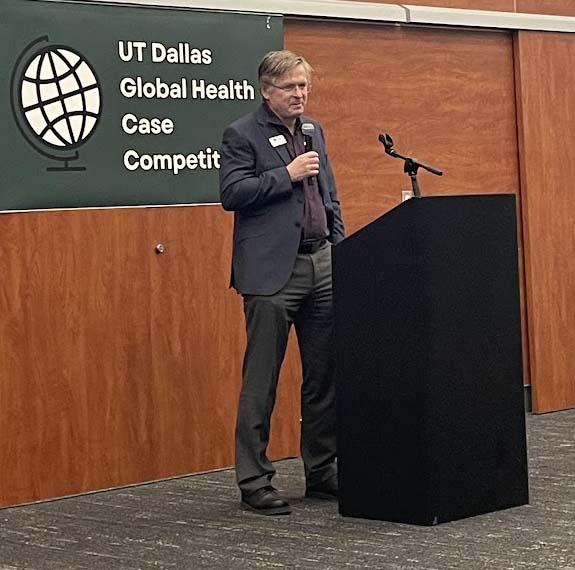
Kumar’s passion for global health was stoked last June when she heard about similar competitions at Emory University that invite student teams from all over the world to come to Atlanta and show how they would solve major health issues plaguing the world today.
She saw no reason why UT Dallas couldn’t earn a spot on that national stage. But how would that team be chosen? And where would the funding come from?
A visit to Dr. Donal Skinner, dean of the Honors College, secured the funding, and a conversation with Chivakula gave her a planning partner. From there, they had three months to take the idea from “a Google document in July to a reality,” as Kumar put it.
“A huge factor that attracted me to come to UTD was its students, and they have not failed to impress me,” said Skinner, who arrived on campus in January 2023. “When Nandita came to me with this idea and demonstrated her clarity of vision, I thought that we needed to make this happen.”
“I recognized that there was a small risk of not being able to pull off something like this as quickly as she did, but when you meet Nandita you know instinctively that she is going to change the world. Clearly, she has already started that at UTD!”
The students’ first decision was the topic. They chose “Taking on Environmental Health Disparities: Developing Health Action Plans to Improve the Health of Indigenous Peoples” – a purposely broad issue.
“We found that a lot of the cases in other competitions were focused on one regional area,” Chivakula said. “In the spirit of interdisciplinary action, we wanted people from different backgrounds to have input.”
To underscore that interdisciplinary action, they decided that each team of four to six students had to include at least three different academic schools. That was in step with the makeup of the organizers’ majors – public policy for Kumar, finance for Chivakula.
“I think this really showed all the engineering students, all the pre-med students, all the business students that you can connect your field to public service,” Kumar said. “You can be that force of good. It doesn’t start from just being a CEO; you can do that as a student.”
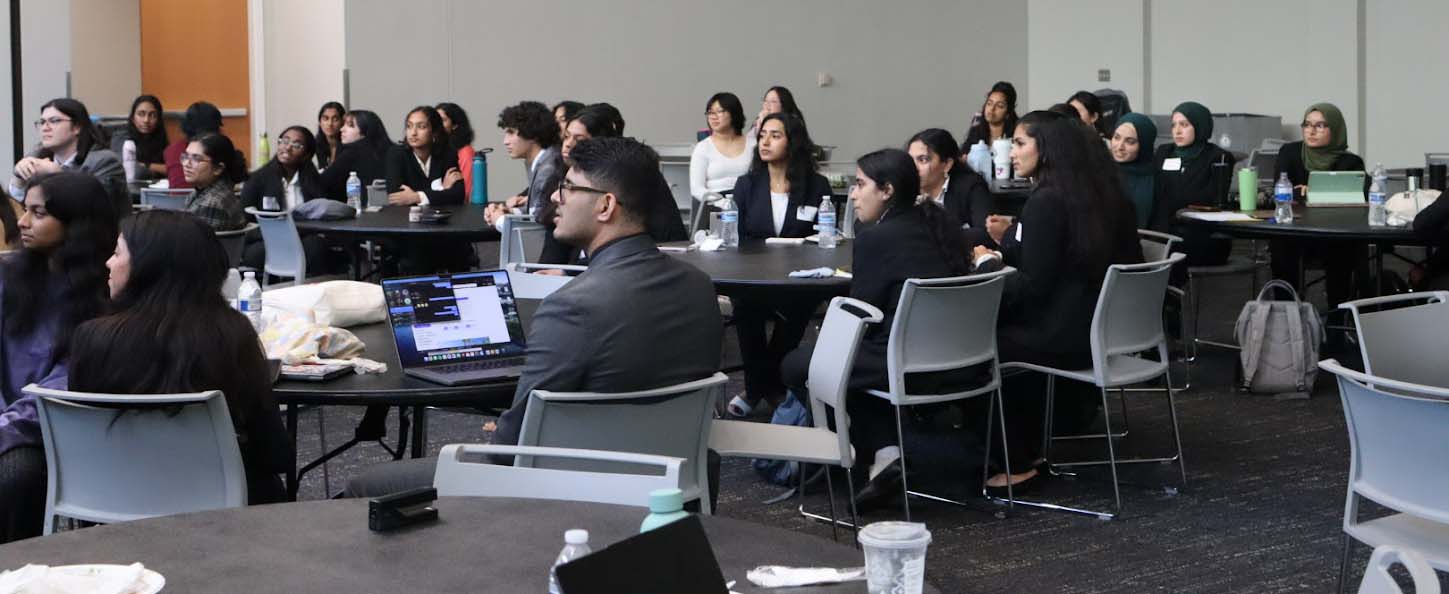
Then came the difficult task of publicizing the competition to generate student interest. Since their communication was largely by word of mouth, they figured they would be fortunate if 40 students entered.
The response was their first indication that this might be something special: They had to cut off the entries at 146 students, split among 29 teams. It took the organizers several days just to read through them all, but they were delighted to see such passion.
“It takes dedicated people with passion to sit down, come up with a plan and execute it,” Chivakula said. “I think that inspired a lot of people.”
But there still was a lot of work to do as they helped mold those presentations. They conducted a three-hour feedback session in which team after team came in for 15-20 minutes of questions and answers. They later saw how many entrants dramatically changed their approach because of it.
Twenty of the 29 teams were invited to submit a virtual presentation of their ideas, reviewed by a virtual panel of judges. That served as an elimination round before the in-person competition, in which 55 students on 10 teams competed.
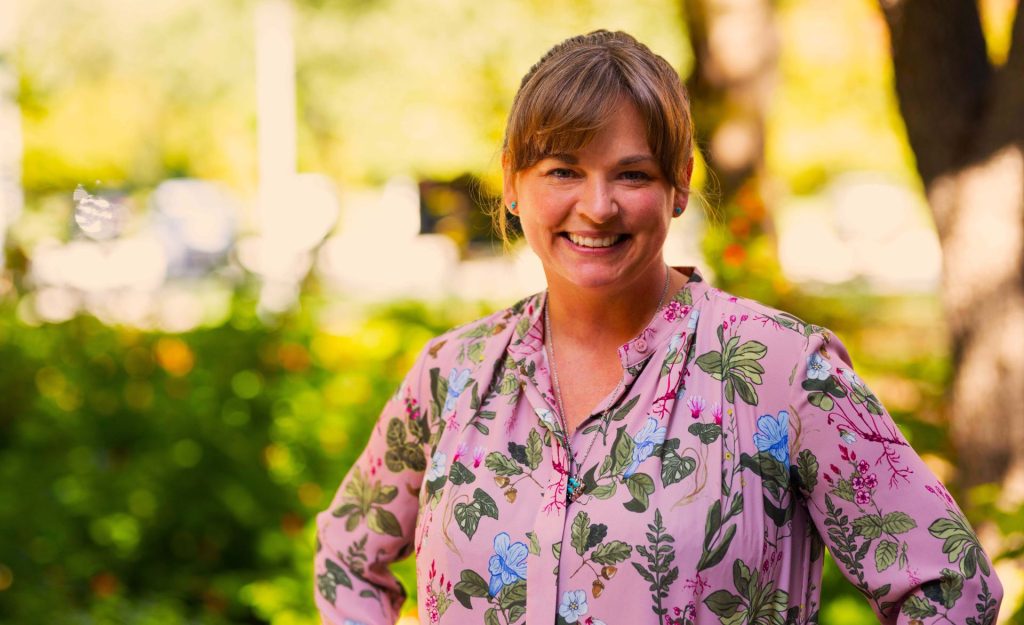
The judges included four UT Dallas faculty members – Dr. Jessica Hanson-Defusco, assistant professor of global health policy; Galen Dickey, assistant professor of sociology and public health; Jacqueline Long, project supervisor for the Academic Bridge Program in the Office of Undergraduate Education; and pre-law advisor Dominique Lange – as well as a Dallas pathologist, Dr. Pallavi Patil.
The challenge for the presenters was demonstrating sustainable, real-world solutions that would outlast an imaginary four-year, $6 million grant.
“Sustainability is often misinterpreted,” Hanson-Defusco said. “What it means is it is a machine you can get running or you can help get running better if it’s already operating, and then it’s successful long beyond the funding. It’s carried on and doesn’t die the minute the project money runs out.”
Hanson-Defusco knows the subject inside and out. She teaches classes on international development and global health after working in sustainable development in Africa and Latin America for about two decades.
“We try to teach about intercultural knowledge and skill-building, how to prioritize the voice of people in what is now called the majority world – countries that have 80% or higher poverty rates,” she said. “You don’t want to find a solution for them, you want to find a solution with them. You want to listen to them.”
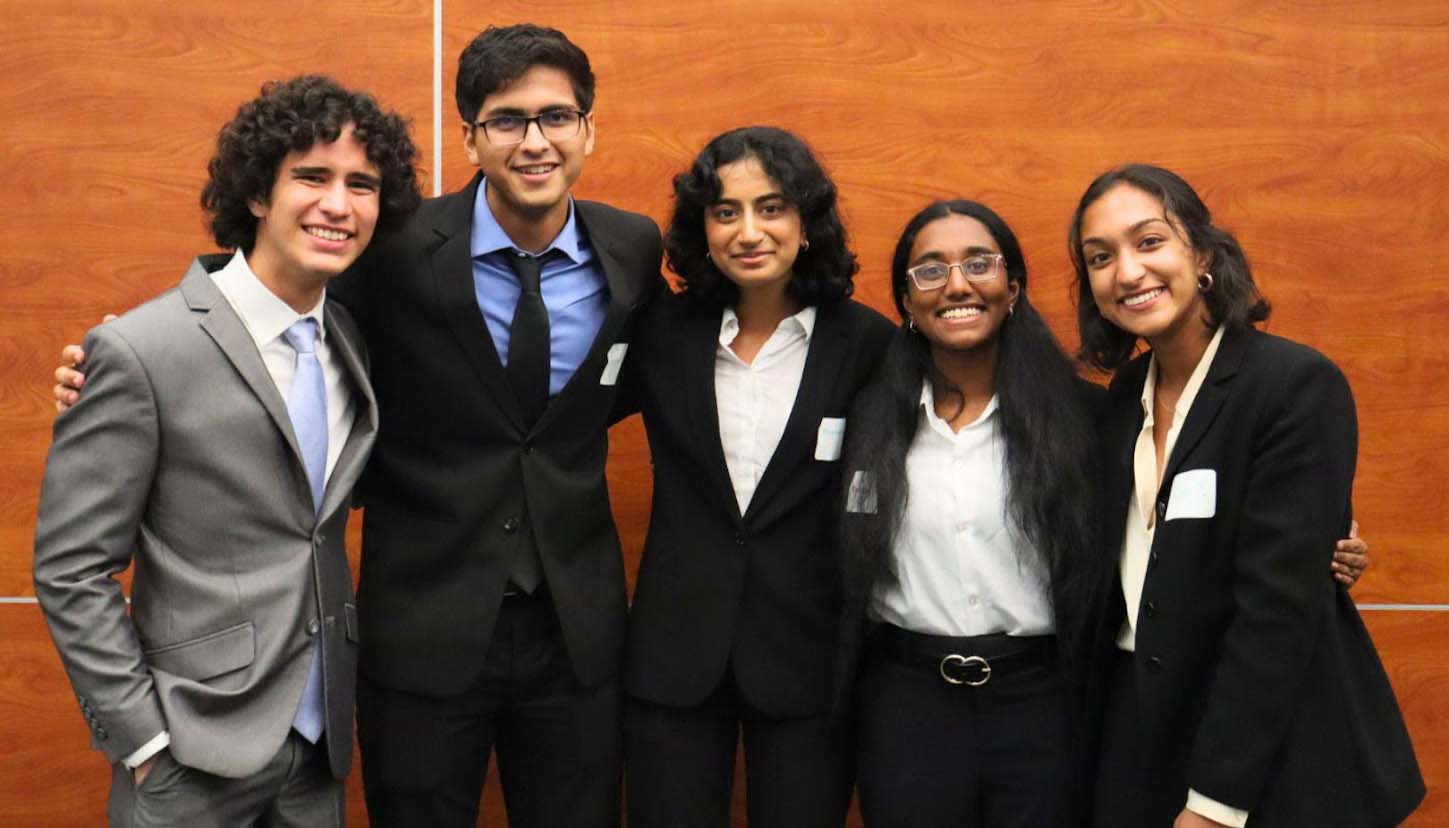
The team that best fulfilled that mission with an outstanding presentation, in the opinion of the judges, included Nicolas Hermoza, Fagun Shah, Meghana Vadlamudi, Anjana Mahadevan and Riya Thomas. Their solutions for critical health disparities among the child population in Rohingya refugee camps in Bangladesh were mobile health clinics, child-centered play therapy, increased vocational and educational access and job opportunities, and establishing electronic medical record systems to bypass the reliance on unstable internet connections.
“They really were thinking capacity and sustainability,” Hanson-Defusco said. “They were building on a model that is well-tested in the field. We could see 100% getting funded by a major organization like UNICEF or the Gates Foundation and being 100% successful.”
The presentation was so good, it was accepted to compete in the national competition at Emory.
And now that UT Dallas’ first Global Health Competition was 100% successful, sustainability is a buzzword for the organizers. They plan to talk to academic leaders about the possibility of integrating their idea into degree plans and event offerings – and further connecting STEM and liberal arts education.
“We want this to be something that the University looks at as an opportunity to grow,” Chivakula said. “Because I’ve seen this: UTD’s being taken more seriously on an international level. It’s a school to be contended with.”
That has proved sustainable, too.